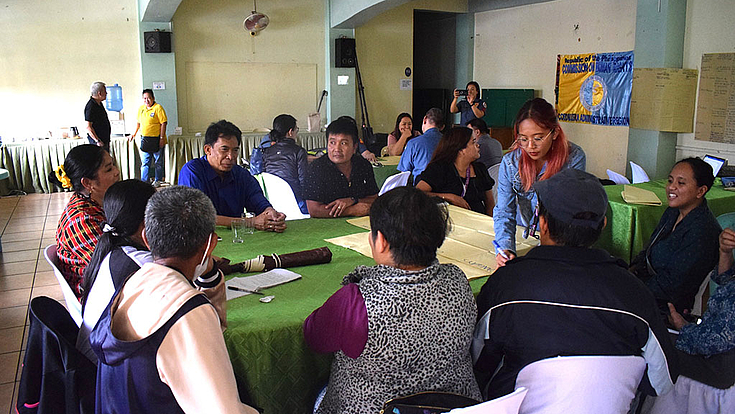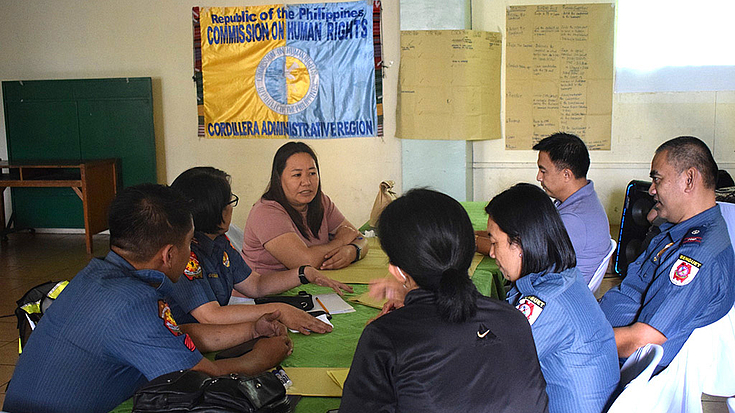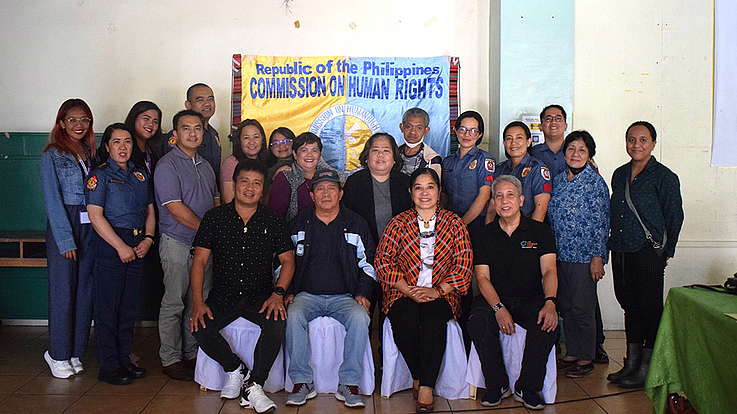Community-based Dialogues Project (CBD)
CBD Holds FRS Orientation and Scoping Session in CAR
CHR-CAR
It was attended by more than 20 participants representing the Barangay Human Rights Action Officers (BHRAOs) Federation, civil society organizations (CSOs), Police Regional Office-Cordillera (PROCOR), and officers and staff of ALG led by its National Coordinator, Atty. Sheila Formento and the CHR-CAR led by its Regional Director, Atty. Romel Daguimol. CHR Central office and HSF representatives joined online.
An overview of the CBD program and the context in the development of the FRS was presented covering the objectives, activities conducted, essential elements of a referral system, steps in setting up the FRS, existing framework (CHR, PNP, BHRAC), main phases of the FRS, proposed system flow chart, and next steps.
Two workshops were formed to answer specific questions. Workshop 1 questions were: (i) for each step/phase of the FRS, who does what? (roles or specific tasks assigned to each stakeholder), and (ii) what existing or alternate mechanisms are there which can take on those tasks? The FRS steps are (i) receive the complaint, (ii) assess the complaint, (iii) refer the complaint, (iv) conduct follow-ups, (v) resolve, (vi) respond, (vii) learn, and (viii) report. The participants were grouped by sector and each sector noted their roles for each of the FRS steps.
CHR-CAR
For Workshop 2, questions were: (i) in which barangays can we pilot the FRS (top 5) and what are the opportunities present in these barangays? (ii) what safety measures or mechanisms will make you feel safe/unsafe to report HRVs?; (iii) what are the challenges in implementing the FRS? and (iv) what are your recommendations to overcome these challenges? The top five (5) barangays identified were (i) Bakakeng Norte/Sur, (ii) Balacbac Sto. Tomas Proper, (iii) Cabinet Hill-Teachers Camp, (iv) Burnham Legarda, and (v) Magsaysay Legarda.
The workshop groups presented their outputs in plenary. Clarifications or comments on the presentations were considered.
Finally, the group discussed the next steps for the FRS and agreed on the following: capacity-building; awareness-raising; FRS network meetings, pilot implementation; and preparatory work.
An open forum was held, followed by a group photo.



